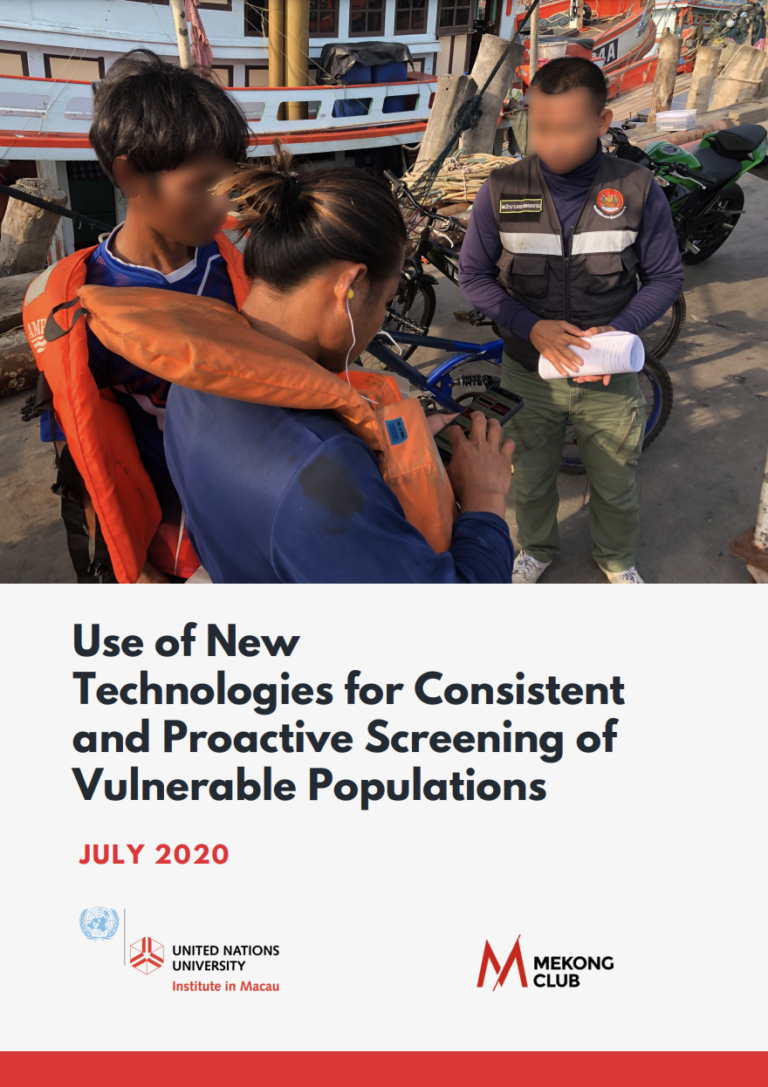The decreasing cost of Information and Communications Technologies (ICTs) and increasing mainstreaming of new technologies have resulted in wider application of digital tools to address global problems such as human trafficking and forced labour. There is currently a high level of interest from within the donor community, businesses, governments, and international organisations in using new technologies such as artificial intelligence, block chain, and machine learning to address development
challenges and improve the collection of data. This has resulted in a variety of test cases and proof of concepts showing how new technologies can be used to address different social problems. When purposefully configured and informed by inclusive design principles, new technologies can play an important role in supporting key stakeholders to begin to address these problems.
This report specifically focuses on the use of new technologies in identifying potential victims of forced labour and human trafficking and uncovering patterns of exploitation. The report does not consider other applications of new technologies in the context of a migrant’s journey from recruitment to re-integration. Though not directly considered in this report, those issues will benefit from critical examination in future reports moving forward.

